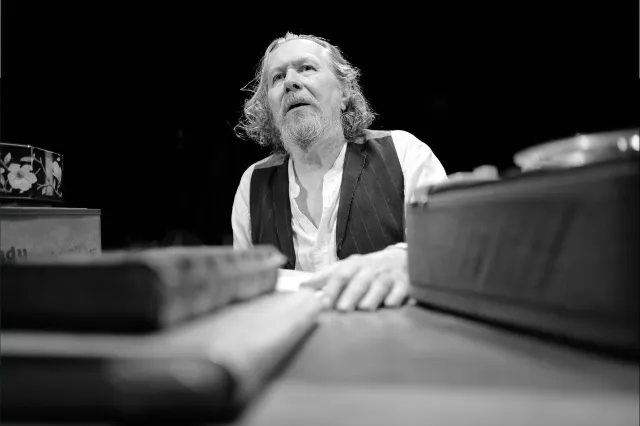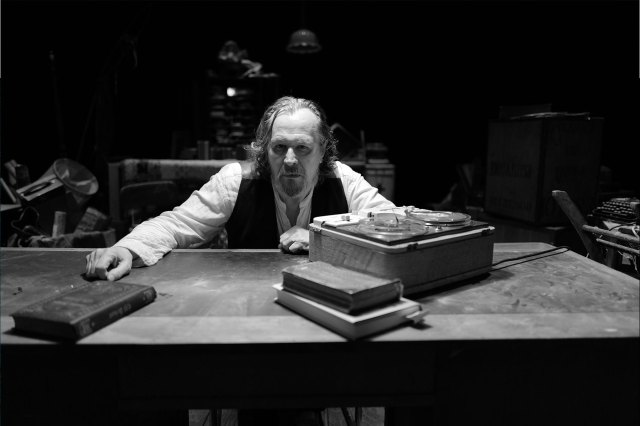Krapp’s Last Tape with Gary Oldman at York Theatre Royal – review
The production, running until 17 May, marks a homecoming for Oldman, who began his professional acting career at the venue

Krapp’s Last Tape plays with time – and so does this production. Gary Oldman, on his return to the stage, chooses the theatre where he debuted in 1979 and the programme contains a letter from the theatre’s director at the time and a copy of Oldman’s original stage biography. While he connects with his own past, he also connects with former Krapps, John Hurt and Michael Gambon, dedicating his performance to their memory and even using the same tape recorder as they did.
Oldman’s self-directed performance, on the main stage at York, buries the actor in a vast pile of boxes, books and cartons, at a table with the inevitable tape recorder and a solitary light above – again, designed by Oldman. He heaves himself into view from somewhere below this mound at the start, but otherwise moves very little.
To begin with, Krapp eats bananas, every movement studied, then silence apart from the odd noise until he sets out to find the right spool: he plays with the word “spool” delightedly. The rest of the play is about him and the recorder.
Krapp is 69, the tape he plays is from 30 years previously and looks back to his over-optimistic twenties. His memories are scorned by the bitter and haunted elderly Krapp. He plays and re-plays parts of the tape dealing with his failed relationship with a young woman; he hurls to one side the book on which he pinned his hopes; he begins to record his last tape, a birthday tradition. It is a life composed of unresolved moments, the common theme being disappointed and frustrated hopes.

Oldman distinguishes precisely the old and young Krapp, vocally much stronger and more confident on tape, finding a sort of battered vehemence for the old man. The tape recorder enables him to present simultaneously three periods of a man’s life – and he does so with total conviction.
While we are speculating about time, what, one wonders, would Samuel Beckett make of a 1958 curtain-raiser, written because of his delight at the great Irish actor Patrick Magee’s voice, becoming a major theatre occasion in its own right?
Personally, watching Oldman’s meticulous and detailed performance from a seat in the circle, I found York’s 750 seater a size too big for a play which I have enjoyed in the past in less distinguished close-up performances in studio-size settings.















